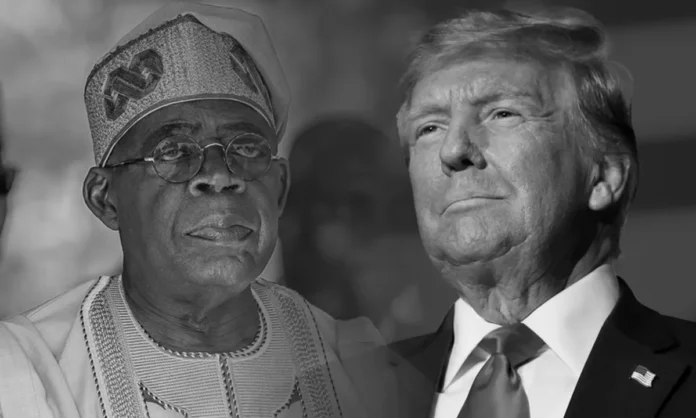President Bola Tinubu has declared that his administration will not be troubled by the trade policy direction of US President Donald Trump, particularly tariffs targeting Nigerian exports.
Tinubu, who spoke on Tuesday, when he received in audience members of The Buhari Organisation-led by former Governor of Nasarawa State, Senator Tanko Almakura, who paid him a solidarity visit at the Presidential Villa in Abuja, said that his administration will remain resilient.
He cited Nigeria’s current economic trajectory and growing non-oil revenues as buffers against external shocks.
“If non‑oil revenue is growing, then we have no fear of whatever Trump is doing on the other side,” Tinubu said.
He highlighted Nigeria’s strengthened fiscal position, having met its 2025 revenue target as of August, and noted a stabilisation in the naira, which has appreciated to around ₦1,450 per dollar from a previous rate of ₦1,900 after he unified the exchange rates upon assuming office in May 2023.
Trump’s second term has ushered in sweeping changes to U.S. trade policy, including the imposition of a 10 per cent baseline tariff on nearly all imports, alongside country-specific levies.
In his Liberation Day trade policy announcements on April 2, 2025, Trump introduced unprecedented reciprocal tariffs under his “America First” agenda, aiming to rebalance trade deficits.
The policy included broad country-specific tariffs ranging from 11 per cent to 50 per cent on top of a 10 per cent baseline.
Nigeria, like many sub-Saharan partners, now faces a 15 per cent tariff on its exports, effective August 7, following an initial 14 per cent rate announced in April.
However, energy commodities, including oil and gas, have been exempted from the new tariff regime.
Nonetheless, reports show that heightened trade tensions and tariff imposition have already dampened energy product exports globally in early 2025, disrupting demand flows for crude oil, gasoline, and diesel.
Tinubu also pointed to progress on his administration’s agricultural reform agenda, citing a massive mechanisation programme across regions.
“If we remove hunger, we have defeated poverty,” he said, arguing that food security is key to Nigeria’s economic recovery.

